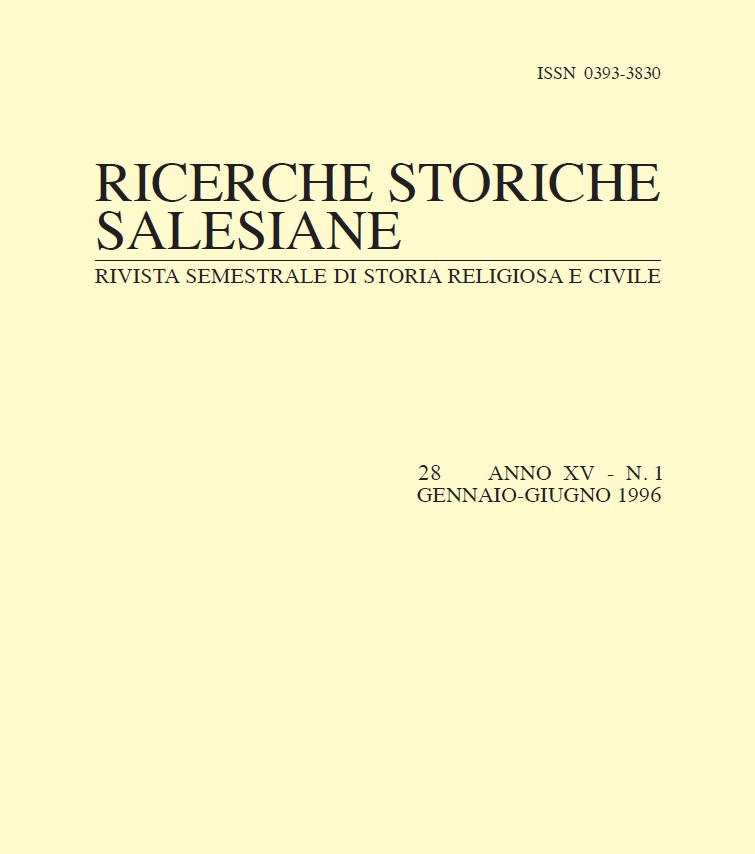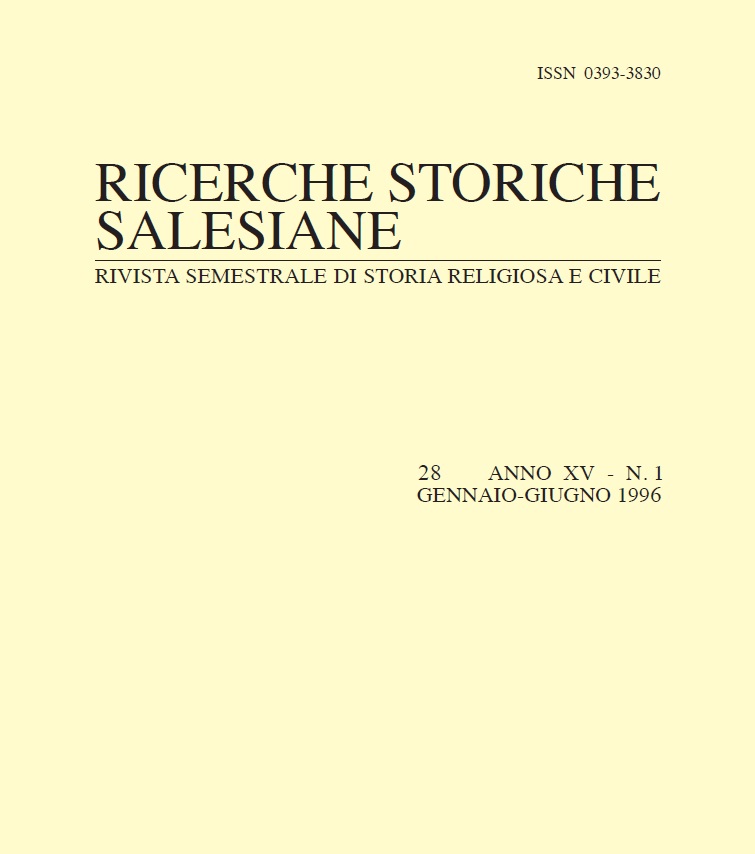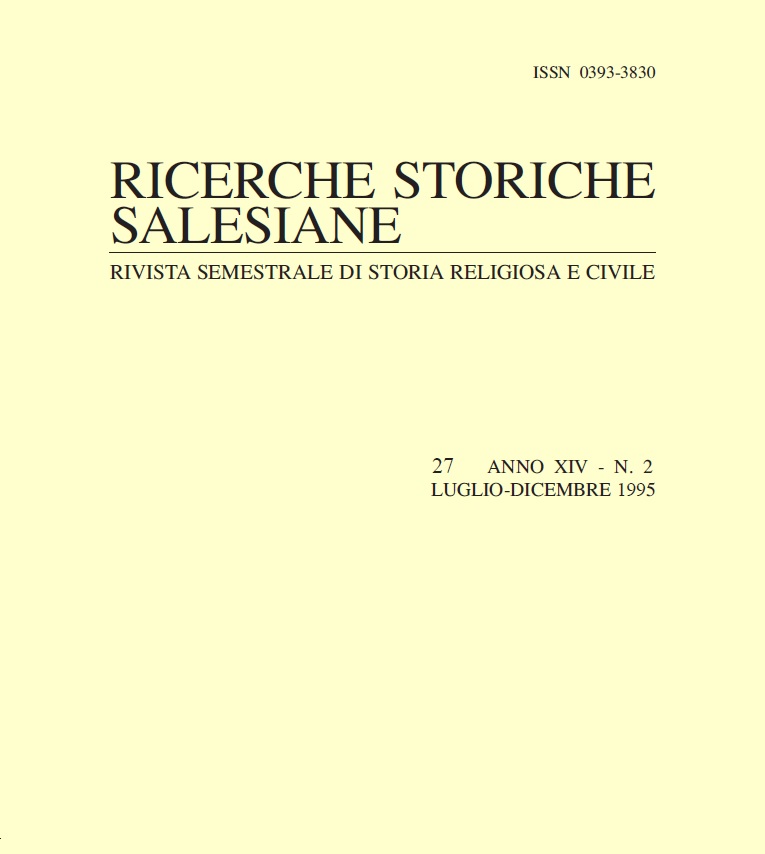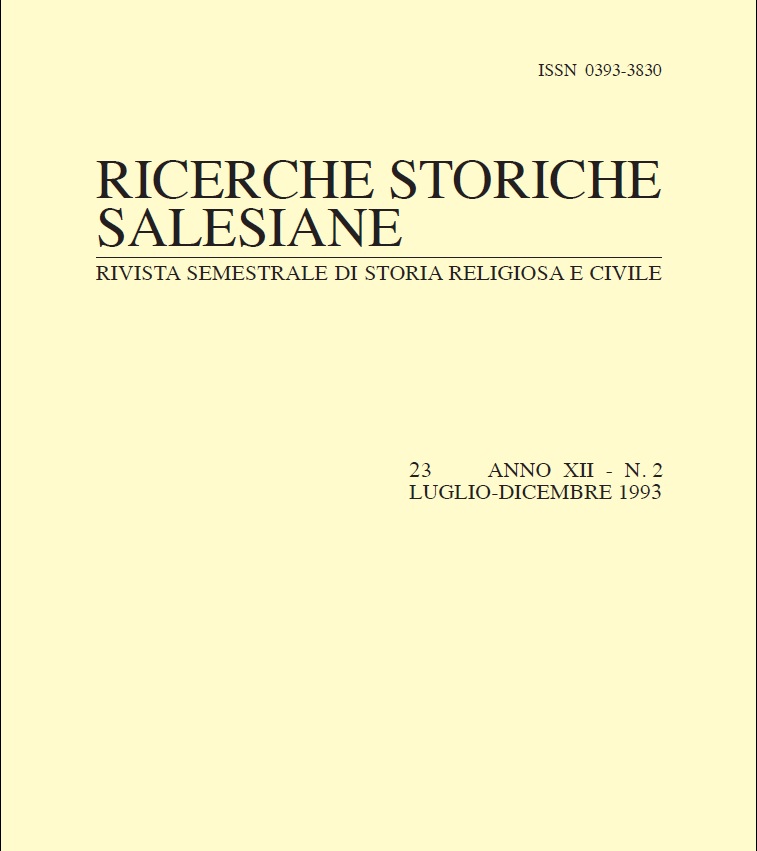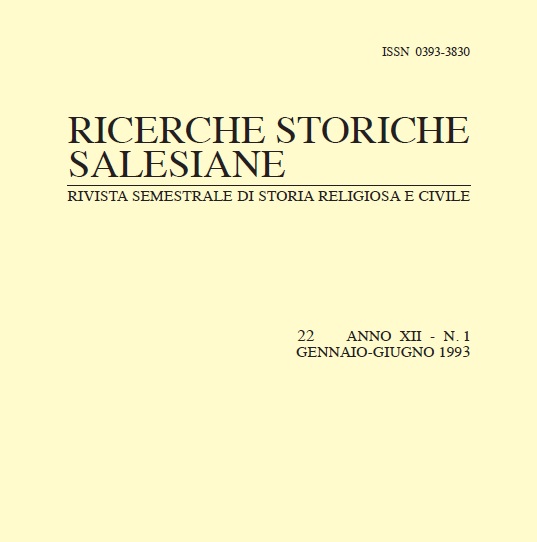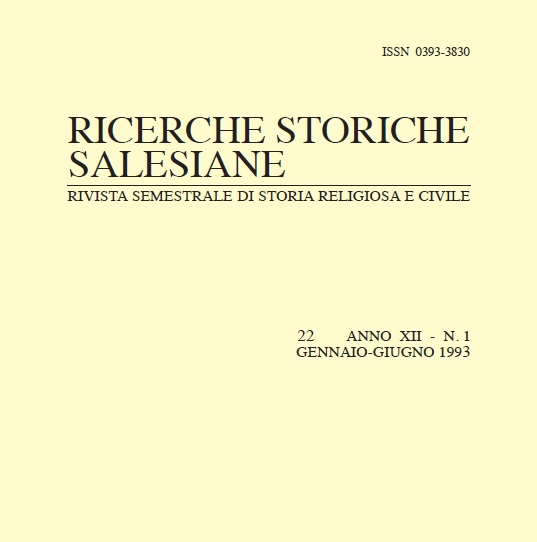Dopo aver concluso la ricerca nell’archivio vaticano, che aveva portato a un chiarimento rilevante a proposito del riconoscimento giuridico della Pia Società Salesiana nell’impero asburgico, l’autore si vide motivato a continuarla altrove, dove supponeva che si potesse trovare ulteriore materiale utile. Si avvertiva, infatti, l’incompletezza delle indagini effettuate, che, in verità, si erano concentrate solamente sugli anni 1907-1909. Rimaneva ancora da esplorare almeno il triennio successivo, nonché il periodo anteriore già trattato, ma piuttosto sbrigativamente. Continue reading “Stanisław Zimniak – Salesiani e politica alla luce dei documenti concernenti il loro riconoscimento giuridico nell’impero asburgico” →

